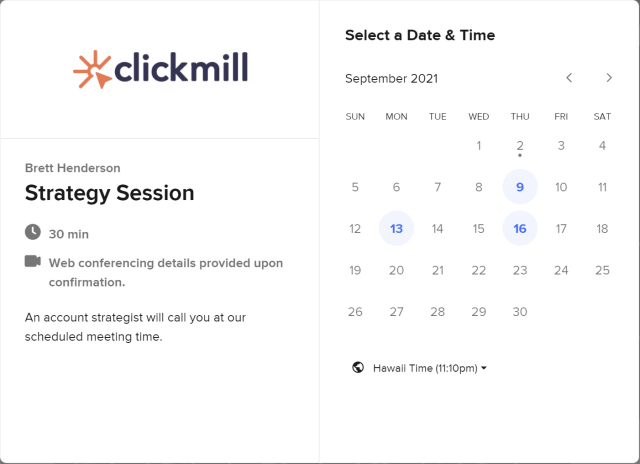Church marketing mistakes can stop growth and outreach. Common mistakes are leaders not getting marketing, avoiding it, and leaving it to experts only. Not engaging the right audience, not defining success, and neglecting trust-building also lead to poor marketing.
Do you want to know what church marketing mistakes are slowing down your church growth?
If that’s you, your going to love what’s in store in this article.
Let’s get right into church marketing mistake #1.
Church Marketing Mistake #1: Church Leaders Don’t Understand What Marketing Is

Imagine what your church would be like if your staff members had never studied theology AND disagreed on whatever they did understand. Nothing productive would ever happen.
This is exactly the state of marketing in the church. Do your pastors and leaders share the same understanding of what marketing is? Have you come to an agreed-upon marketing plan that will accomplish your church growth goals?
Without this understanding, staff members talk past one another as they discuss growth strategies. One pastor thinks marketing happens on Facebook; another thinks marketing happens at outreach events. Younger pastors think marketing is digital and older pastors think marketing happens through mailers or bulletins.

Everyone brings these assumptions to the table – and everyone uses the word ‘marketing’ even though they are talking about entirely different things.
A good church marketing strategy addresses all of these misconceptions and gets everyone on the same page.

Solution:
When everyone on your leadership team shares the same mental marketing framework, they are primed for fruitful conversations that will lead to real growth. Most importantly, everyone on your team should know which part of the marketing strategy they are responsible for.

Get A Proven Marketing Plan That Increases Enrollments When You Book A Call Today!
Receive customized advice to help your school attract more families!
Church Marketing Mistake #2: Church Leaders Unconsciously Avoid Marketing

Many church leaders we have talked to don’t realize that they are avoiding marketing because it feels too much like “business”, and “business is bad”.
As church leaders, it’s never about making a profit – it’s about bringing people into a relationship with Jesus, period.
However, it’s also true that if your marketing efforts create more money than they cost you, you will have more money available to invest in reaching people for Jesus. This creates an exponential growth loop which in turn grows your church.

Knowing when to spend more money is a result of understanding how to calculate which of your marketing efforts do the following:
- What marketing efforts result in a positive net income.
- Which marketing efforts get people in the front door.
- What marketing efforts get people to come back to church over and over again (so you can grow their faith).

Solution:
Being able to look at numbers objectively requires your team to be comfortable with business ideas. To put a system in place that effectively grows your church, your team needs to know the line between business and ministry, and the role business strategy plays in church growth.
When your staff feels confident discussing which marketing strategies best steward the church marketing budget (profitable and efficient), your church will be primed for growth.
If you are enjoying this post on Church Marketing Mistakes, you are going to love our article titled, Digital Marketing For Churches: The World’s #1 Church Marketing Guide.

Church Marketing Mistake #3: Church Staff Believes Marketing Is The Role Of A Specialist.
If your church is like most, you have one or two people stashed in the basement somewhere who specialize in everything marketing/tech/communications. This is rarely a recipe for healthy growth.

In a successful marketing plan, everyone on your staff plays a role in marketing (except maybe the finance person).
Your staff marketer should play the role of a conductor, and the rest of the staff each play an instrument in your marketing orchestra. Your marketing “specialists” make sure each person knows the role they play in the church’s overarching marketing plan.

Example Of A Pastor’s Marketing Role:
Step 1: A pastor writes a sermon and is filmed giving that sermon.
Step 2: The staff marketer then correctly posts that sermon on your website.

Get A Proven Marketing Plan That Increases Enrollments When You Book A Call Today!
Receive customized advice to help your school attract more families!
After the sermon is published to the “sermons” page, nobody ever finds the sermon whether it’s through Google, Bing, etc. It just lives on your church website, alone with no viewers… forever. Why does this happen? Nobody finds your content because nobody is looking for it.

One factor that pastors (as marketers) should be considering when they choose their sermon topics is what people online are asking for. And the crazy thing is, Google will gladly tell you what your audience is asking for, for free!
For Example: In the entire country, there may be only 10 searches each month for the term “Free agency in the Bible“. (See below)

But there may be THOUSANDS of searches every month for “free will in the Bible” (1,900 to be exact). Had the pastor/marketer writing the sermon done keyword research, you might just have gotten an extra few thousand people to your website, every month, forever.

When your pastors are trained in basic marketing practices, very simple exercises can make a HUGE difference in the growth of your church. (Just doing some keyword research before writing a sermon can mean the difference between no new website viewers, and thousands of new viewers, increased donations, and more.)
Solution:
Everyone one of your church staff is a marketer, and your staff marketer makes sure everyone works together to accomplish a specific end goal.


Get A Proven Marketing Plan That Increases Enrollments When You Book A Call Today!
Receive customized advice to help your school attract more families!
Church Marketing Mistake #4: You’re Losing Churchgoers As Quickly As New Ones Come In.
This revolving door effect is very common and can happen with committed volunteers, first-time guests, leadership, or anything in-between.
Why does this happen?
Because everyone who interacts with your church has a need.

When we don’t meet that need effectively enough or quickly enough, people go somewhere else to get their needs met.
This is the #1 reason churches don’t grow faster. Barring unforeseen life events, if you met the deeply felt needs of everyone who walked into the doors of your church, they would stick with you forever.
Solution:
Discover what needs your audience has and give it to them in a meaningful (and scalable) way.

Church Marketing Mistake #5: Your Church Is Talking To The Wrong Audience Or Nobody At All
1.) Talking To The Wrong People: This happens when your church staff members don’t have a clear understanding of who their target audience is.
Suppose your core demographic is young, financially strapped blue-collar working men with young families. If your Sunday sermons are about theology, you’re probably missing the boat. Your audience will resonate much more deeply with Biblical teaching on finance, parenting, faith in hard times, etc.

2.) Talking To Nobody: Talking to nobody is a result of the desire to “speak to everyone”. Experienced marketers know that if you’re trying to speak to everyone, your message will get through to no one. Any content that is intended to appeal to everyone has to be incredibly bland to keep from ostracizing people. The lack of power when speaking to everyone keeps your specific audience from feeling the full power of the message you have for them.

Vague Language: “Jesus wants each of you to lean on him in faith wherever you find yourself in your relationship with God.”
Powerful Language: “When you’re not sure how you will pay for all the needs of your wife and kids, it’s time to do everything you can (join us for our financial series) and then lean on God in complete faith. He will get you through, and we’re here to walk with you.

Solution:
Speaking in a deeply meaningful way to your audience means truly understanding who they are, and what their deeply felt needs are.
Take some time to discover who the specific groups of people are that attend your church. Create a target audience profile for the largest segments of your audience. (Joe James, 33 yrs old, Blue Collar, Low-income bracket, married, 1.5 kids.)

Speak to these semi-fictional profiles in all of your sermons and marketing efforts and you will get through to the hearts of those in your audience.

Get A Proven Marketing Plan That Increases Enrollments When You Book A Call Today!
Receive customized advice to help your school attract more families!
Church Marketing Mistake #6: You’re Creating Win-Lose Scenarios
Win-lose scenarios are our next church marketing mistake. These scenarios happen when you ask your audience to do something for you that they don’t perceive as beneficial for themselves. This can lead your audience to feel burned-out and taken advantage of.

Here are two ways to know if you’re doing this frequently:
- You find yourself saying please (Please consider donating ____)
- You find yourself making requests (Would you help with _____)Asking others to sacrifice for your gain is always a losing strategy.

Instead, reveal all the reasons donating is actually beneficial to your audience. Give them a purpose, make them a hero, allow them to contribute to the great commission. All of these are wins. If you give enough wins to your audience, you will never need to say please or make a request again.
Solution:
If there is something you need from your audience, ask yourself how you can get what you need while at the same time creating a win for your audience by making them see how they got the better end of the deal.

(Churchgoers deeply want a greater purpose, belonging, meaningful relationships, emotional support, and to make a difference. You’re perfectly positioned to give this to them.)
At Clickmill, we have solved this problem by creating a digital ministry internship program that provides in-depth training for those wanting to come into the digital ministry space. We constantly weed through internship applications where individuals passionate about learning digital ministry commit 6 months and 500+ hours of their time to work for us. Not only this, but we have interns who choose to stay beyond their 6-month term because they feel the value of education is so high, they want to continue working with us.
Give your volunteers and churchgoers huge win-win payoffs to commit to your ministry.
Church Marketing Mistake #7: You Can’t Identify What Success Means For Your Church
Many churches fail to identify and measure the key indicators of a successful growth strategy. These Key Performance Indicators (KPIs) are specific to your marketing plan.

Physical KPIs: In-person KPIs may be how many first-time visitors you have each month and the percentage of them who return the next week.
Digital KPIs: Online KPIs may be the number of first-time website visitors and the percentage of them from who you can get contact information.

Solution: Choose the most important outcomes your marketing plan seeks to accomplish and measure them. This will allow you to see what’s working and what’s not. This also helps each pastor on staff to know exactly what goals to focus on.

Get A Proven Marketing Plan That Increases Enrollments When You Book A Call Today!
Receive customized advice to help your school attract more families!
Church Marketing Mistake #8: You Haven’t Built Enough Trust With Your Audience

You and I both know your heart desires to bring people into a relationship with God and to see them flourish through unbreakable faith. But, this doesn’t mean your audience knows your intentions.
Trust is built with your audience as you consistently give them more value than you expect to receive in return. Firstly, value doesn’t equal money. Your audience determines what’s deeply valuable to them, and I can almost guarantee it doesn’t cost any money.

Example: Ben doesn’t have a strong relationship with his family which is something he values. His deeply felt need is a supportive Christian community. If his pastor creates a strong ‘family of Christ’ environment, he will instantly feel as though he has been given more value than just about anything he could ask for in return. Because he places such a high value on this, he begins to believe that the church & his pastors are working in his best interest, so he trusts them.
Solution:
Be sure your church is building trust by meeting the deeply felt needs of your audience and new visitors. This means taking time to understand your audience and discovering the biggest problems they face.
Church Marketing Mistake #9: Expecting People To Find You
The old adage “if you build it they will come” is no longer true. This belief is the #9 church marketing mistake. This may have been the case when there was only one church in town, but those days have come and gone.
In today’s world, it’s critical for church leaders to go and find their audience outside the church. This is partially the role of advertising and marketing, and partly the role of outreach ministries.
The most important factor to consider when doing outreach is to know who your target audience is. Your target audience is a specific group of people that gravitate toward your church.
Jesus’ target audience was the Jews. Jesus spent his time going to Jewish temples and towns around Israel.
Paul’s target audience was the Gentiles. Because of this, we see Paul going on missionary journeys to places gentiles could be found.

Once you know who your target audience is, determine where you can find them in large groups. Where do they hang out? Single moms can be found at daycares, millennial hipsters at coffee shops, etc.
Once you know where your target audience can be found, you can plan an effective campaign to build relationships with them, and invite them back to church.

Solution:
Do the following:
- Determine who your target audience is.
- Determine where your target audience can be found.
- Then go get them.

Get A Proven Marketing Plan That Increases Enrollments When You Book A Call Today!
Receive customized advice to help your school attract more families!
Church Marketing Mistake #10: Your Team Doesn’t Use Calls To Action (CTAs)
People naturally take the path of least resistance. The #1 rule in any sales training is that you MUST ask for the sale. Why? Because people won’t take action until you ask them to.
When you don’t ask your audience to take action, they will wander from church to church until someone else does.
Many pastors we have worked with feel uncomfortable calling people to action, and this is the next church marketing mistake. A call to action is a request for commitment in some form. Here are some examples:
- Come back to church next week
- Volunteer regularly
- Join a small group
- Give 10% tithe
A proper call to action only allows the hearer a yes or no option.
This may sound uncomfortable, but this is really a good thing. No matter what the individual says, it helps you identify those you can rely on and those you can’t.
When Jesus called people to action in the New Testament, He asked once, and then went on his way whether they said yes or no.

Here are two examples:
The Disciples: Follow me and I will make you fishers of men. Matt 4:19
The Rich Your Ruler: Give all your wealth to the poor and follow me. Matt 19:21
The disciples agreed to follow Jesus but the rich young ruler did not. In both cases, Jesus accepted the answer and continued moving forward.
If you have built trust with your audience & have met their deeply felt needs (like Jesus did), you have earned the right to ask them to commit in some way.
Solution:
To get more commitment for the people attending your church, use specific Calls To Action more frequently.
Example: You can see Clickmill’s main Call To Action below that says, “Schedule My Free Marketing Assessment!”

That about sums it up for the Top 10 Disastrous Church Marketing Mistakes.
If you would like to see the internet’s most comprehensive guide on church marketing, check out our article, Church Marketing: The World’s #1 Online Church Marketing Guide [Update 2020]
FAQs
A common misunderstanding is that church leaders often have different interpretations of what marketing is and how it should be implemented. This can lead to a lack of a cohesive marketing strategy, with different members of the leadership team pursuing different approaches.
It’s important because marketing should be a collective effort rather than the sole responsibility of a specialist. Each member of the church staff can contribute to the marketing strategy, playing different roles to ensure a unified and effective approach.
To avoid this mistake, churches need to clearly understand their target audience and tailor their messages to meet the specific needs and interests of that audience. This involves creating detailed audience profiles and ensuring that all communications are relevant and engaging for them.
A win-lose scenario occurs when the church asks its audience to do something that doesn’t also benefit them. This can be avoided by ensuring that every request or call to action also offers a clear benefit or value to the audience.
Defining and measuring success is crucial because it allows churches to understand what’s working and what’s not in their marketing efforts. By setting clear Key Performance Indicators (KPIs), churches can track their progress and make informed decisions to improve their marketing strategies.
What do you think is the biggest church marketing mistake? Let us know in the comments?

Responses